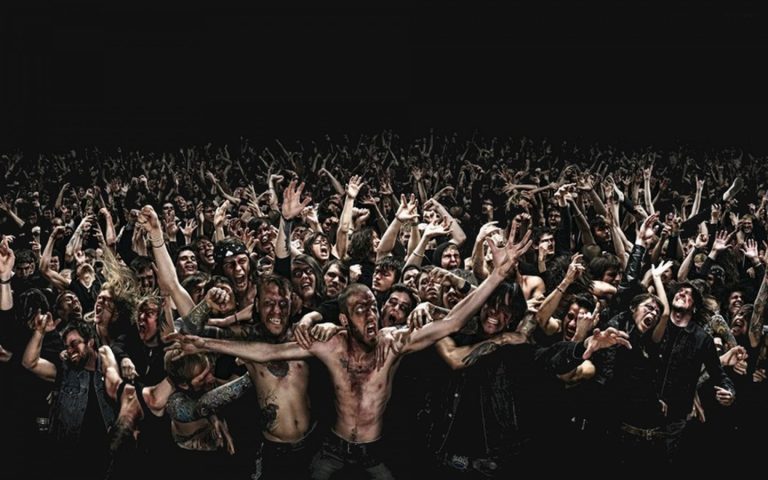In the summer of 2012, I participated in the Run For Your Lives 5K. This run through multiple miles is littered obstacles, and is populated with dozens of of zombies, attempting to pull one of three flags you’re wearing and symbolize your death. Sure, the race was a great way to get in shape, but let’s face it, the real reason I decided to sign up, train for a few months before taking the run, and exhaust myself over multiple miles was that I love the classic, undead, flesh eating monsters.
Zombies are my favorite monster, bar none. They terrify me in a way that vampires, ghosts, and werewolves never have. Most monsters tend to be a part of a story that is happening in a functioning society, hidden behind cover-ups and a massive suspension of disbelief; zombies change their world. Desolate locations and personal stories are what makes a truly great zombie story, desperate people in a desperate time. However, as everyone from Techland to Treyarch get in on the act, my love for zombies is starting to grow stale.
Zombies have been a staple of the video game industry since Resident Evil created one of the most iconic survival horror experiences of all time. To this day, the slow crawl through the monster filled mansion is one of my all-time favorite gaming experiences. For a long time, Resident Evil was the only zombie series of note. Zombies worked their way into a couple different big series, and games like Half-Life or Return to Castle Wolfenstein featured the undead, but they were never really the main villain.
You have to skip ahead to 2006’s Dead Rising to find another game that would be considered a true, “zombie game”. The game was a moderate success, selling one million copies by the end of 2006 and received generally positive reviews. After that, it would be another two years until Valve’s Left 4 Dead would hit the Xbox 360. Left 4 Dead was also a success, selling 1.8 million copies. These games signaled the start of the zombie dominance in the current console generation.
In 2010-11, zombie games began to find an even stronger foothold in the gaming world These years gave us Dead Nation, Red Dead Redemption: Undead Nightmare, Call of Duty: Black Ops: Zombies, and the original Dead Island. The alternate modes, Undead Nightmare and Black Ops’ zombie mode, were highly praised by critics and beloved by fans. As the cultural phenomenon of zombies continued to grow, so did the amount of zombie games.
In 2012 we saw some of the best games featuring the flesh consuming beasts. The year was host to the games Amy, The Walking Dead, Lollipop Chainsaw, the mod DayZ, a bigger zombie mode in Call of Duty: Black Ops 2, and the WiiU launch title ZombiU. It was not only the amount of these games, but how many successes there were. The Walking Dead had a great run during the award season and set a new level of excellence the folks at Telltale. DayZ accrued a cult following and earned itself its own stand alone publishing. ZombiU was one of the few third party launch titles for the WiiU, receiving solid reviews.
Don’t get me wrong, it is great to have a plethora of well made zombie games, but too much of anything can be bad. Even when these games are well crafted, they all feature a lot of the same themes and design features. Ruined cities, difficult survival decisions, and gory violence are all things that I love about a zombie apocalypse, but have grown weary of due to repetition. It is this exact reason that, despite my deep zombie love, I couldn’t bring myself to buy either The Walking Dead: Survival Instinct or Dead Island: Riptide. Not to mention that after last year’s The Walking Dead and DayZ, I have a new standard for zombie games that neither of these titles could live up to.
It should be obvious why these games are being made. The name recognition is strong and zombies are easily the most popular monster while vampires currently recover from the Twilight astardization. In the words of Mr. Mugatu, “Those zombies are so hot right now!” But publishers like Deep Silver and Activision can take advantage of middling titles like Dead Island for only so long; you have to strike while the iron is hot.
The problem is that in when there is an influx in any genre, it tends to muddy the water, rather than foster more success. Stories about the zombie apocalypse are interesting because they ask questions that tap into our base humanity. Amidst horrible acts, and demolished lives, people strive to piece together a world they understand. As much fun as it is to bash in the brains of a walker, or how terrifying it is to stumble across a witch in Left 4 Dead, these acts are only as good as the gameplay and storytelling can make them. Too many games are using zombies as a gimmick, rather than a channel to tell an interesting story. Thus, the stories have grown dull. The magic of a zombie filled world has lost it touch, as the games industry continues to beat its undead horse. Maybe we put zombies on the shelf for a bit, because right now the undead have been done to death.

0 Comments